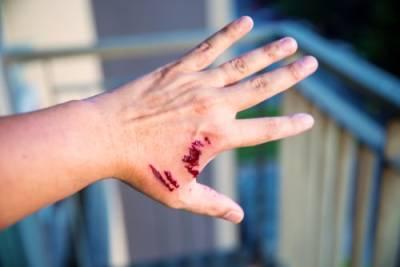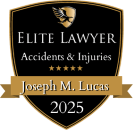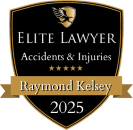Recent Blog Posts
The Most Common Culprits of Car Accidents in Illinois
 Car accidents occur in Illinois and across the world for countless reasons. Sometimes, it does not matter how careful you are behind the wheel, mistakes by other drivers can lead to a collision. If you are involved in a car accident, you may be entitled to financial compensation for your vehicle damage, medical expenses, and other losses. We will break down the common types of car accidents in the state of Illinois below.
Car accidents occur in Illinois and across the world for countless reasons. Sometimes, it does not matter how careful you are behind the wheel, mistakes by other drivers can lead to a collision. If you are involved in a car accident, you may be entitled to financial compensation for your vehicle damage, medical expenses, and other losses. We will break down the common types of car accidents in the state of Illinois below.
Driver Error
Driver error is one of the leading causes of car accidents in Illinois. Distracted driving is a major issue, as it can easily lead to collisions. Some of the types of distracted driving are:
-
Texting, talking on the phone, and checking social media
-
Eating while driving
-
Looking for something in the car
Have You Been Injured by Truck Cargo in an Accident?
 We all rely on the work of truckers, from getting food to the grocery stores to medications on pharmacy shelves. Trucks move some 70 percent of all sellable merchandise nationwide. But being on the roads does not come without risk. In 2020, about 4,840 fatal crashes involved large trucks. What makes these truck accidents so dangerous is their mere size and the cargo they carry. Sometimes that can include pallets, objects, and even dangerous chemicals that wind up on the road. If you are involved in an accident and injured due to a truck driver’s negligence, you could be entitled to compensation.
We all rely on the work of truckers, from getting food to the grocery stores to medications on pharmacy shelves. Trucks move some 70 percent of all sellable merchandise nationwide. But being on the roads does not come without risk. In 2020, about 4,840 fatal crashes involved large trucks. What makes these truck accidents so dangerous is their mere size and the cargo they carry. Sometimes that can include pallets, objects, and even dangerous chemicals that wind up on the road. If you are involved in an accident and injured due to a truck driver’s negligence, you could be entitled to compensation.
When Cargo Becomes a Road Hazard
When truck drivers operate their vehicles carelessly and negligently they are dangerous to other drivers on the roads. A big part of their responsibility is to ensure that their cargo does not shift or spill out of the truck onto the roadway and pose a hazard. The cargo must be secured so it does not move around, even at high speeds. In a truck crash, a trailer door may open, and cargo can spew across the highway. Drivers on the road may not be able to react in time and stop, causing a chain-reaction crash. Loose or shifting cargo can also lead a truck to become unbalanced and difficult for the driver to control.
Tips to Avoid Disaster While Getting Your Christmas Tree Home
 ‘Tis the season when many people will tie a Christmas tree to the roof of their cars to bring home. But what happens if your Christmas tree falls off of your car and causes serious injuries to someone? Research from AAA shows that 44 percent of Americans admit transporting a tree unsafely, and 16 percent say they have had a Christmas tree fall off of their vehicle on the way home. You have to remember that once you drive off the lot with the Christmas tree it is the driver’s responsibility to make sure it does not wind up being a hazard on the road.
‘Tis the season when many people will tie a Christmas tree to the roof of their cars to bring home. But what happens if your Christmas tree falls off of your car and causes serious injuries to someone? Research from AAA shows that 44 percent of Americans admit transporting a tree unsafely, and 16 percent say they have had a Christmas tree fall off of their vehicle on the way home. You have to remember that once you drive off the lot with the Christmas tree it is the driver’s responsibility to make sure it does not wind up being a hazard on the road.
Secure Cargo or Face Negligence Allegations
If the tree flies into oncoming traffic and causes an accident, anyone who is injured in the crash can file a lawsuit against you and sue for damages. Remember, if your vehicle does not have a roof rack, tying a tree to the roof of your car is probably not a good idea. Improperly fastened cargo can lead to serious legal consequences. If someone is harmed as a result of your falling Christmas tree you could be sued for negligence.
How a Motorcycle Ride Can Lead to Catastrophic Injuries
 Hitting the road with the air on your face is a one-of-a-kind experience for motorcycle riders. But the reality is that motorcycle injury rates increased by ten percent between 2019 and 2020. Motorcyclists are 28 times more likely than a car passenger to die in a crash and four times more likely to be injured. These motorcycle catastrophic injury accidents can leave you facing everything from amputation to traumatic brain injuries, and they can certainly be fatal. They can harm the most experienced motorcyclists because often others fail to be safe on the roads.
Hitting the road with the air on your face is a one-of-a-kind experience for motorcycle riders. But the reality is that motorcycle injury rates increased by ten percent between 2019 and 2020. Motorcyclists are 28 times more likely than a car passenger to die in a crash and four times more likely to be injured. These motorcycle catastrophic injury accidents can leave you facing everything from amputation to traumatic brain injuries, and they can certainly be fatal. They can harm the most experienced motorcyclists because often others fail to be safe on the roads.
Common Injuries Sustained by Motorcyclists
Some motorcycle injuries can permanently impact your ability to work and care for your children. Motorcycle accident injuries can result in serious bodily harm even at low speeds, compared to injuries suffered by people driving other types of vehicles.
The most common injury in a motorcycle accident is head trauma including traumatic brain injury. These injuries typically occur because the rider is thrown from the bike with their head hitting the pavement with severe force. That is why wearing a helmet is critical. Other types of injuries that motorcyclists can experience in a collision include the following:
How Does Distracted Driving Cause Car Accidents?
 Distractions and driving, especially when ghosts and goblins are roaming the streets for Halloween, can be a scary combination. It can lead to more than a traffic violation. It can spark a car accident and you could end up seriously injured. If you were recently hurt or lost a loved one in a Barrington car accident or truck accident, contact a personal injury attorney for help.
Distractions and driving, especially when ghosts and goblins are roaming the streets for Halloween, can be a scary combination. It can lead to more than a traffic violation. It can spark a car accident and you could end up seriously injured. If you were recently hurt or lost a loved one in a Barrington car accident or truck accident, contact a personal injury attorney for help.
Types of Distracted Driving
Anytime you are driving and doing something else that causes you to move your hands off
the steering wheel or keep your eyes on the road, that is considered distracted driving. The following three categories of distracted driving are common:
-
Visual: Looking at your radio, GPS, something on the side of the road,
or reading a text
Weather or Carelessness - Which Is to Blame for My Car Accident?
 September is one of the rainier months here in Illinois. The season is slowly starting to change from summer into fall. The intense heat waves that contribute to road rage in the summer are likely over. However, we will probably be dealing with a lot of rain. It is no surprise that car accidents are a bit more likely to happen while it is raining. When the rain first starts the roads are slick, as the bits of oil and grease from traffic have not yet washed off. As the rain is coming down hard, visibility can be impaired. Even after the storm, drivers are not done blaming their poor driving habits on the weather. If car accidents were truly unavoidable when it is raining or wet, it is not likely that people would continue to willingly get on the roads under these circumstances. If you were injured by a driver who claims that the weather was at fault, you may want an attorney to help pursue your claim.
September is one of the rainier months here in Illinois. The season is slowly starting to change from summer into fall. The intense heat waves that contribute to road rage in the summer are likely over. However, we will probably be dealing with a lot of rain. It is no surprise that car accidents are a bit more likely to happen while it is raining. When the rain first starts the roads are slick, as the bits of oil and grease from traffic have not yet washed off. As the rain is coming down hard, visibility can be impaired. Even after the storm, drivers are not done blaming their poor driving habits on the weather. If car accidents were truly unavoidable when it is raining or wet, it is not likely that people would continue to willingly get on the roads under these circumstances. If you were injured by a driver who claims that the weather was at fault, you may want an attorney to help pursue your claim.
5 Parties Who Could be Liable After an Uninsured Driver Hits You
 You are driving along in a lawful manner when suddenly, you get hit by a driver who was most likely doing something unlawful, like looking at their phone. After checking whether anyone needs an ambulance, one of the first things you do is ask the at-fault driver for their insurance information. Instead of reaching into their wallet, the responsible driver stares at you like a deer in headlights. You are hit with a horrible realization - they do not have an insurance company to pay for your damages. It may be an even worse feeling if your injuries are severe and you find out about their lack of insurance in the hospital, from the police. You are likely wondering how on earth you are going to recover compensation after a crash with an uninsured motorist. Our attorneys can help you identify any other party who could be liable or seek compensation in another way.
You are driving along in a lawful manner when suddenly, you get hit by a driver who was most likely doing something unlawful, like looking at their phone. After checking whether anyone needs an ambulance, one of the first things you do is ask the at-fault driver for their insurance information. Instead of reaching into their wallet, the responsible driver stares at you like a deer in headlights. You are hit with a horrible realization - they do not have an insurance company to pay for your damages. It may be an even worse feeling if your injuries are severe and you find out about their lack of insurance in the hospital, from the police. You are likely wondering how on earth you are going to recover compensation after a crash with an uninsured motorist. Our attorneys can help you identify any other party who could be liable or seek compensation in another way.
Why You Should Seek Medical Care for Every Dog Bite
 Getting attacked by a dog can be terrifying. A dog may seem perfectly calm or even happy one moment, only to turn into a snarling beast the next. Children are some of the most common victims of dog bites, in part because they may lack the skills needed to safely interact with a strange dog. Dog bites can be particularly harmful to young kids who may even be smaller than the animal. However, even adults should take a dog bite that breaks skin seriously and seek medical attention.
Getting attacked by a dog can be terrifying. A dog may seem perfectly calm or even happy one moment, only to turn into a snarling beast the next. Children are some of the most common victims of dog bites, in part because they may lack the skills needed to safely interact with a strange dog. Dog bites can be particularly harmful to young kids who may even be smaller than the animal. However, even adults should take a dog bite that breaks skin seriously and seek medical attention.
Even if the bite does not look too bad, it may require careful cleaning or preventative antibiotics. If you were not trespassing and did not provoke the dog, you can most likely recover compensation for any medical costs and more.
4 Reasons to See a Doctor After a Dog Bite
Attempting to treat a dog bite at home has the potential to end badly. Boites can create deep puncture wounds, doing more damage than you can see right away. Seeking medical care for every dog bite is a good idea for these reasons:
3 Ways Insurance Might Take Advantage of Unrepresented Parties After a Car Crash
 Many, if not most, insurance companies have one goal and only one goal - and it is not to make sure that people their clients injure get fair settlements. In fact, the goal of a car insurance company after one of its drivers causes a crash is generally to get away with paying the lowest possible settlement. Settlements offered by insurance companies to unrepresented crash victims are often far too low to cover the costs and financial losses associated with a car crash.
Many, if not most, insurance companies have one goal and only one goal - and it is not to make sure that people their clients injure get fair settlements. In fact, the goal of a car insurance company after one of its drivers causes a crash is generally to get away with paying the lowest possible settlement. Settlements offered by insurance companies to unrepresented crash victims are often far too low to cover the costs and financial losses associated with a car crash.
Taking a settlement without speaking to an attorney could mean leaving thousands or even tens of thousands of dollars on the table. It is not likely that an insurance company will tell you that you can recover things like future care expenses and lost wages. They may even dishonestly tell you that they do not pay for certain costs that you could be legally entitled to recover. It is important to work with an attorney who understands your rights and will fight to protect them after a car accident injury.
The Difference Between Speeding and Driving Too Fast
 We all know what speed limits are - whether one chooses to obey them is another matter. However, it is possible to be simultaneously obeying the posted speed limit and driving too fast. The posted speed limit applies when road conditions are normal. Drivers must also take things like the weather, the traffic, and any damage to the road itself into consideration when determining the appropriate speed. Even if the driver who caused your car accident was following the speed limit, they could still be found to have been driving at a negligent speed if they failed to take other conditions into account. If your accident was caused by a driver who was going too fast but not speeding, you will want to speak to an attorney as soon as possible to begin building your case.
We all know what speed limits are - whether one chooses to obey them is another matter. However, it is possible to be simultaneously obeying the posted speed limit and driving too fast. The posted speed limit applies when road conditions are normal. Drivers must also take things like the weather, the traffic, and any damage to the road itself into consideration when determining the appropriate speed. Even if the driver who caused your car accident was following the speed limit, they could still be found to have been driving at a negligent speed if they failed to take other conditions into account. If your accident was caused by a driver who was going too fast but not speeding, you will want to speak to an attorney as soon as possible to begin building your case.
What is Speeding?
Legally, speeding means driving faster than the posted speed limit. It can be rather cut and dry. If the speed limit is 35 miles per hour and the driver was going 41, they were speeding. If they were going 36 miles per hour, they were speeding. As a practical matter, most law enforcement agencies tend to ticket drivers who exceed the speed limit by at least five miles per hour, but even one mile per hour over the limit is technically speeding.










